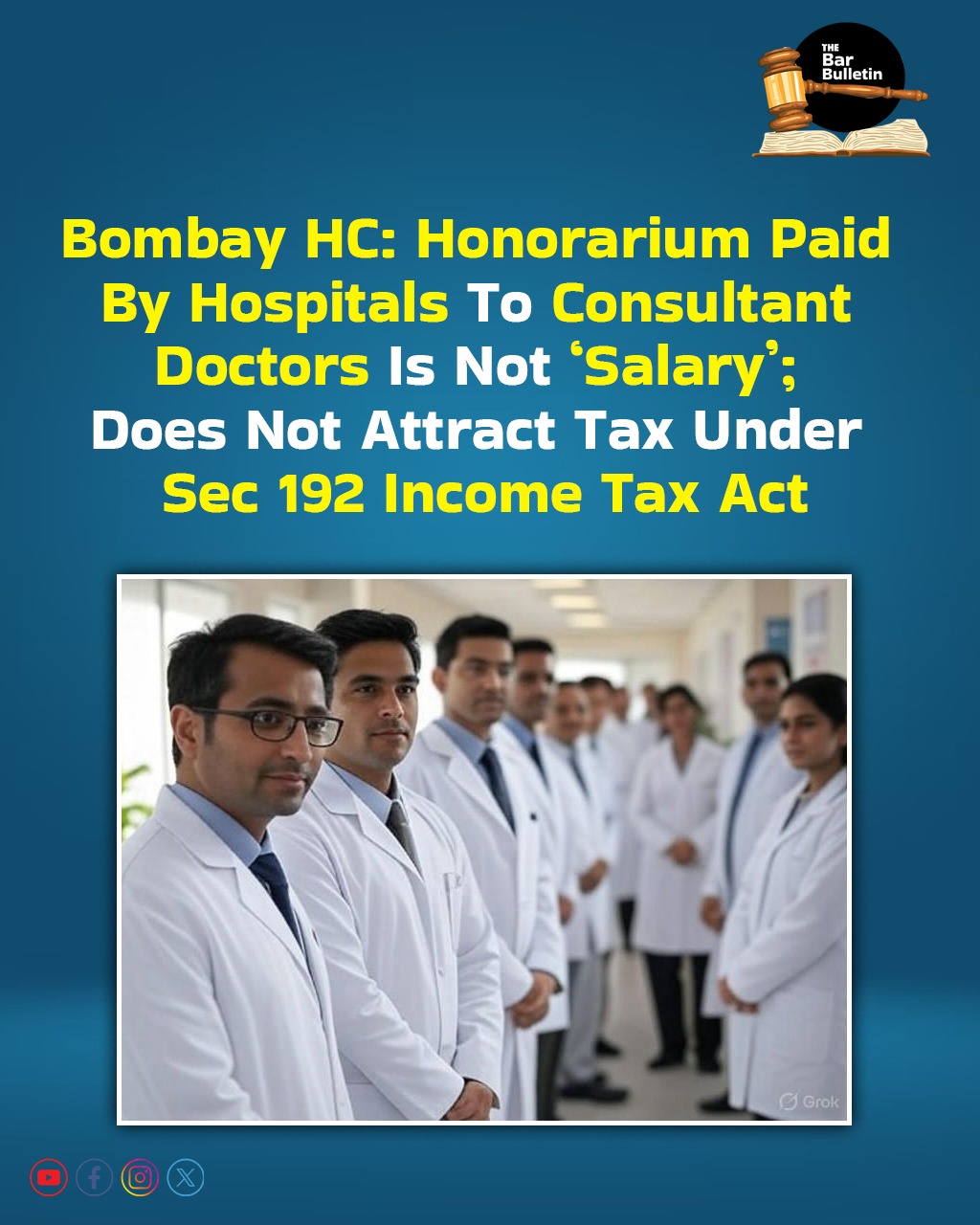The Bombay High Court recently ruled that the variable remuneration paid to the honorary doctors appointed on a probationary basis, without any employee benefits such as PF/ ESIC facilities/ or perquisites, cannot be treated as “salary”, warranting any tax liability under Section 192 of the Income Tax Act. While holding so, the Court clarified that the respondent hospital has no real supervisory control in respect of the work entrusted to the consultant doctors, and there was no “employer & employee” relationship between the doctors and the hospital.
As far as the characterisation of the remuneration paid to the consultant/honorary doctors is concerned, the Division Bench comprising Justice B.P. Colabawalla and Justice Firdosh P. Pooniwalla found that these doctors are appointed firstly on a probationary basis, taking into consideration their qualification and expertise in the area of their specialization, and they do not receive any fixed monthly remuneration. The Bench also noted that a part of the remuneration paid by the patients towards these doctors is retained by the Hospital, and these doctors are also free to practice independently in other Hospitals too.
As far as the payment of Annual Maintenance Contract (AMCs) charges is concerned, the Bench noted that the ITAT, being the last fact-finding quasi-judicial authority, ought to have independently examined the AMCs before determining whether each of those AMCs was “technical” or “professional” services being rendered to the Trust, or otherwise. However, since, in the present case, the ITAT has simply reproduced the findings of the CIT(A) to impose TDS liability under Section 194C, the Bench remanded the matter to the ITAT to re-examine the nature of the AMC charges.
Briefly, in this case, a survey was conducted in the premises of the respondent (Hospital Trust), leading to discrepancies in deducting TDS, filing of quarterly TDS Returns, and delay in deduction of TDS. The AO noted that the respondent had appointed consultant doctors on its panel, and had deducted TDS from the honorarium paid to these doctors under Section 194J, treating it as fees for professional services. The AO, however, found that the respondent exercised greater control over these doctors by subjecting them to various restrictive clauses in the terms of employment, and therefore, opined that the consultant doctors are employees of the respondent and the payment made to them would be “salary”, warranting TDS deduction under Section 192 instead of Section 194J of the Income Tax Act.
The AO also observed that the respondent was paying Annual Maintenance Contract (AMCs) charges in respect of the maintenance of various medical equipment. Opining that these services required human intervention and superior technical skills, the AO held them as “technical services”, requiring tax deduction under Section 194J, instead of Section 194C of the Income Tax Act. Lastly, treating the respondent as in default under Section 201(1) and 201(1A), for incorrect use of the provision in tax deduction, the AO raised a demand for tax and interest. On appeal, the CIT(A) mostly answered in favour of the Respondent, and the said findings of the CIT(A) were also upheld by the ITAT. Hence, the Department approached the High Court.
Appearances:
Advocates Prakash Chhotaray, Sangita C., and Akanksha Shukla, for the Appellant/ Revenue
Senior Advocate Dr. K. Shivaram, along with Advocates Rahul Hakani and Shashi Bekal, for the Respondent/ Taxpayer



